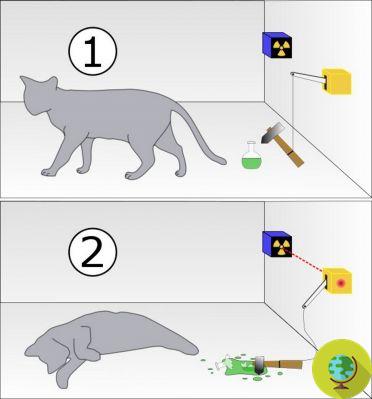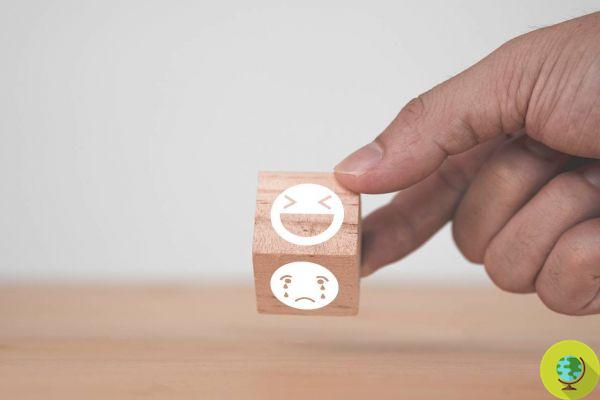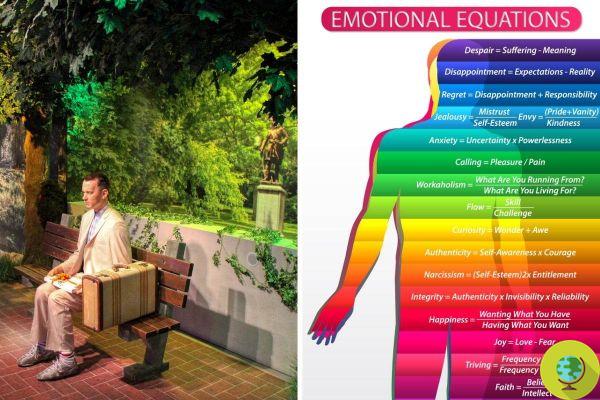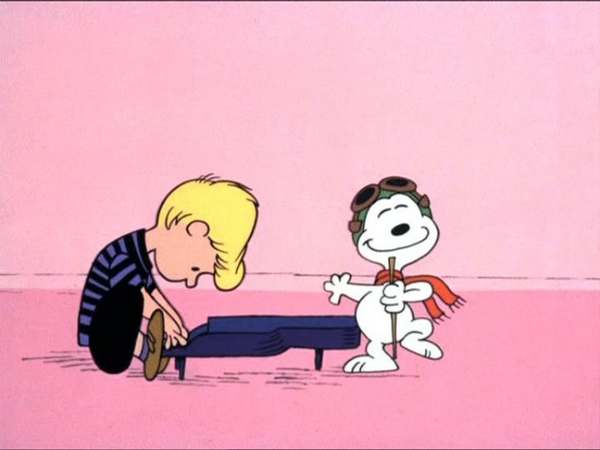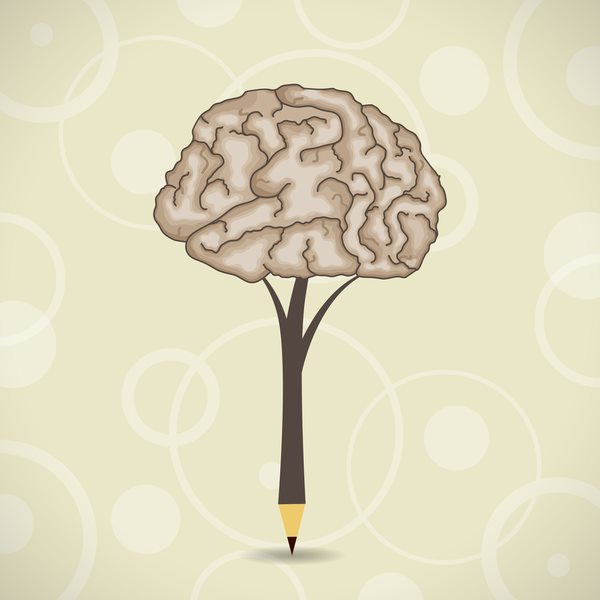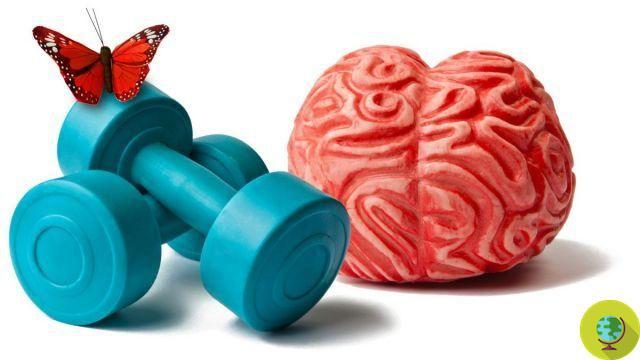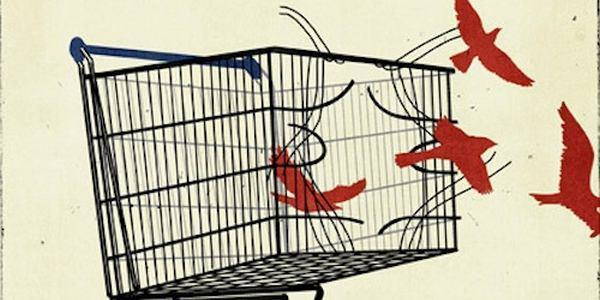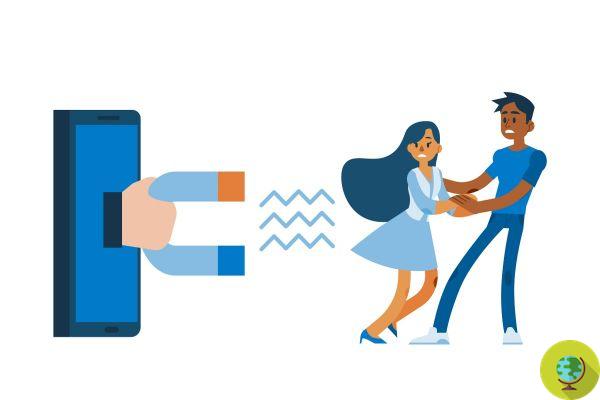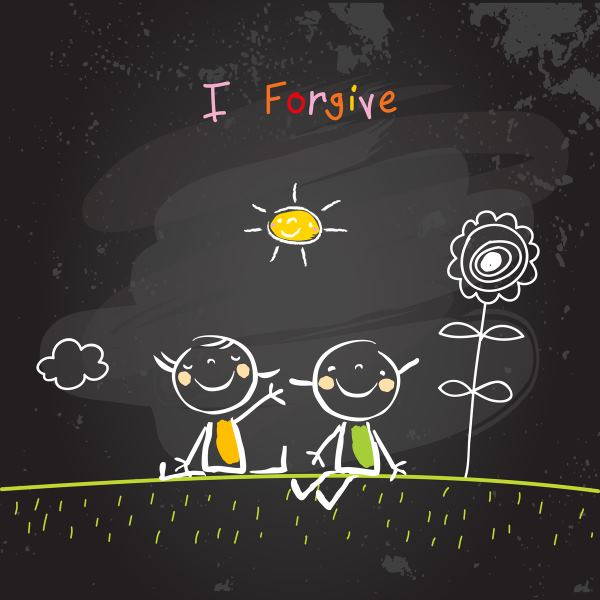
Let's see together with the psychologist Alessia Bajoni of the Santagostino Medical Center how to behave with our teenage children
Don't store avocado like this: it's dangerousThey are no longer children, but not even adults. They want to grow, they want more independence but at the same time they are not yet ready to take off. We are talking about adolescents whose inner and outer turmoil often involves difficulties also in the relationship with their parents.
Who, faced with so many changes and the emergence of a more complex emotional-instinctual world, find themselves displaced and sometimes struggle to interface serenely with them. On the other hand, adolescence is like this, a delicate transition phase that often involves conflicts and discussions. But from a parenting point of view, are there any behaviors that should be completely avoided? Alessia Bajoni, Head of the specialist service of psychology and psychotherapy for adolescents in Santagostino, answers us, explaining the 10 worst things to do with a teenage child.
1.Treat and see your child as still a child, not accepting the leap of adolescence with its specific characteristics.
Adolescence is a transition phase between 'no more and not yet', that is, between the world of childhood and the world of adults. It is a preparatory phase for becoming 'grown-ups' in which the transformations of this phase (that of the body, instinctual, relational, communicative) of the adolescent child are central in knowing, building and appropriating their own identity, distinct from that of the parents. Going through this phase and these changes can be very tiring and disorienting for both the young person and the parents who no longer find themselves in a relational and emotional-drive pattern that accompanied them up to that moment (childhood ...) but in another 'dimension' in which drives to separate and find other points of reference other than their parents prevail , difficulty in managing a more complex emotional-instinctual inner world, relationships with peers that appear to be central but also critical for feeling 'adequate and belonging'.
At this stage it can happen to the parents of struggle to find the right 'distance' from the child, lurching towards extremes: either the control as if he were still a child or they develop a sort of detachment and criticism as if 'they no longer recognize him'. It can happen that you develop a sort of 'unconscious' denial of the child's age and the changes he is going through, especially when they begin in a subtle and not evident way (voice, changes related to puberty, relationships with peers), not helping him to make a leap, still replacing him / her in important decisions (school, sport, free time , friends ...) thinking that he is not yet able to choose or adapting to an apparent decision-making passivity of the young person or simply with the intention of protecting him from 'possible mistakes'. At other times while being aware of the changes taking place or coming, they are the parents themselves clinging to a family structure and to a relational style that has characterized them up to now, struggling to process the 'mourning of childhood'.
It is essential that the parents themselves recognize that they are in difficulty in facing this delicate phase but also so central to the life of one's child, perhaps asking for help from specialists (psychotherapists with specific skills with adolescents and parents of adolescents).
- Controlling your teenage child, developing fear and distress about the distance it takes to separate from their parents
During adolescence, the search for new stimuli, new points of reference can lead the young person to change places, groups, acquaintances: in these movements he may seem confused, a sort of 'crazy ball' in a pinball machine, arousing fear and anguish in the parents. The entry into adolescence brings with it some ghosts such as the use / abuse of alcohol and substances, the possibility with the occurred puberty to access an adult sexuality, the presence of different thoughts and distractions from the points of reference such as school and family. Parents faced with the young person's need to find other communicative interlocutors (friends, boy / girl ...) begin to fear the worst, to draw hasty conclusions from clues that they observe or capture from the child himself: it seems in their eyes that the the only way to be able to have certain answers and to get to know the 'new teenage son' is to start controlling him, even going so far as to 'violate' private spaces such as the cell phone, listen to conversations, follow him while he goes out with friends.
The path of control, understandable from the point of view of the parents, can actually lead to a deeper break, that is to a relational and communicative break between parents and child with even more serious consequences: the young person moves away and feels the lack of trust on the part of the parents in a delicate phase, trust necessary to make the leap to adulthood with an important support 'network'. It is essential at this time to rethink 'trust' as something that is not given or given as in childhood but as something that is built between parent and child in this phase with a more adult dialogue, in which we can talk about a more complex and dangerous world that the young person is facing (world in which there are sex , drugs, alcohol, video games ...), trying to understand the meaning that some behaviors may have for him and at the same time conveying with the dialogue limits and dangers that the adult parent sees and knows. In this way, the fears of the parent do not become 'heavy and controlling' but openings to dialogue and a confrontation between two generations.
- Do not talk at home about failures and losses, starting with those tried and experienced by the parents themselves, for fear of the consequences they may have on the adolescent child
Today's young teens in 2021 are children born into a narcissistic Western culture and society with 'fluid borders', as Zygmunt Baumann would say. It is important for parents to take into account the context in which their children become teenagers. Today's society with the use of the internet, social networks, mobile phones conveys a clear message: the importance of external appearance, of how one is outside more than inside, the centrality of showing oneself 'beautiful, successful, with many contacts and likes' but without much attention to the quality and depth of those relationships. The need to 'travel quickly on the web' without the need for real travel and relational engagements makes relationships fluid and the awareness of one's interpersonal skills vacuous.
In this context, young adolescents grow up without experiencing losses and failures either in real or virtual life: a contact is immediately replaced, the thought of loss disappears by swiping the mobile phone and making magical what a 'finger on the screen' can do. . These are often the boys who actually get stuck in adolescence, withdraw, develop symptoms when a loss occurs (the real of a family member, the termination of a relationship ...) and the connected emotions can no longer be denied and avoided. Often when I meet young people like this during the consultation process at the Santagostino Teenage Service, coordinated by me, I help the parents themselves to think and get involved in the relationship with their adolescent child starting from them, telling their losses (present or past ), their failures, whether big or small, present and past, so as to make a paradoxical message 'familiar' or that 'it is part of life to make mistakes' and that if you do not fail, you will not learn to grow. Open as parents to a dialogue with their child taking into account what one really was, one's successes and mistakes means accepting not to be 'perfect and omnipotent' as in childhood, but to be People in the relationship with one's child.
- Freezing in front of the communicative 'walls' of adolescents, without trying to establish a dialogue and an understanding of their world
Some children at this stage entrench themselves in their room, in their silence, they struggle to find a channel of communication with their parents for fear of being judged, for fear of being invaded by 'parents' in their intimate space or simply because they do not know. exactly what they are feeling or feeling either. In some cases, such as in hikikomori, withdrawal can become the 'pathological' response to one's malaise as in the case of adolescents who stop going to school and they close themselves in their room, clearly limiting outings and social relationships, often with the same family they find it difficult to share a meal and a dialogue. They shut down as the real and emotional world blocks and terrifies them, elicits such deep feelings of inadequacy that the only way to have relationships is through a screen or a video game. In these cases the parents remain truly powerless and out of their world: there is a communicative wall that excludes everyone, without the possibility of understanding what the young person may really feel or what he may think.
Parents tend to get stuck, to give up, to consider the relationship with the child as 'irrecoverable' as the classic parent-child comparison is missing. It is essential especially in cases of overt social withdrawal of the adolescent that both the young person and the parents seek help and support from professional psychotherapists experienced in adolescence in such a delicate moment and at risk of developing important depressive pictures. It is the moment when parents do not allow themselves to be paralyzed by silence, but try delicately to approach the world that the young person is living and experiencing (the world of video games, the virtual world ...), giving voice to emotions that he empathically feels and feels (senses of inferiority, senses of inadequacy), patiently waiting for a response from the son, who may be late in arriving, not letting hasty judgments prevail ('he's a slacker! he doesn't want to do anything!' ...) that don't take into account a deeper and more silent suffering of the young man.
- Do not set limits that are discussed and shared with the young person
Parents of adolescents often find themselves faced with the rebellious and transgressive behavior of their children, in need of ever greater spaces of autonomy, in setting restrictive and rigid rules with the aim of bringing 'order and normality' back into the home. In adolescence it is important that there are limits in the home that regulate going out, hours and behaviors. However, these rules and limits must be thought of and discussed with the young person in the adolescent phase, on the basis of his person, behavior and habits: in fact, it does not make much sense to set restrictive rules on going out if, for example, the child is particularly in difficulty in taking up space outside the home or important limits on the use of video games and mobile phones if for the child it becomes the only relational tool he can keep.
It is essential that the boundaries are clear but thought of and discussed with the child in a way that understands the important needs of the child at that time. (for example in the case of a first romantic relationship, perhaps you can rethink the importance of exits ...), calibrated on his person and which are therefore not experienced as 'rules imposed' from the outside but opportunities to start taking responsibility and understanding any risks and consequences of certain behaviors (for example: the young person who gets a driving license and must learn any risks associated with impulsive driving behavior…). In this way the external limit can become an important internal limit, fundamental for making one's conscience and awareness grow and mature.
- Not catching signs of suffering, underestimating or belittling words and gestures that the young person can use to communicate to the family that they are not well
Adolescence is the phase of life in which the body becomes the protagonist, an expression of profound transformations and of an instinctual life that matures precisely in these years. It is therefore 'normal' and common that a teenager may initially feel uncomfortable with a body that is no longer infantile, that he needs to appropriate his own body also through 'experiments': changing the external look and the belonging that the body expresses (hair color, color of clothes ...), modifying the diet in search of slimming or vice versa an increase in muscle mass, practicing intense sports to improve performance and physicality. There are so many possible examples. Adolescence is truly the ultimate training ground for identity: it is thrown, destroyed and rebuilt by the young man in order to find his own. In this fluctuating and impulsive trend, parents can underestimate the signals that the adolescent child begins to give: the parents see the signals and read them as 'another senseless and impulsive behavior' of a 'teenager', in fact.
Excessive dietary restrictions, unexplained bathroom escapes, use of sweatshirts and sweaters that overly cover hands and arms, strong statements like 'my life is shit! I'm leaving here ', night binges, closures at home and in your room. These signals should not be underestimated precisely due to the phase of life that the child is going through. The brain of an adolescent has not yet reached a maturity of the frontal and prefrontal areas, which develop fully only towards the age of thirty: these areas govern judgment and impulse control skills, knowing how to wait and having patience. Impulsiveness and the speed in passing from thought to action are the specific characteristic of adolescent brain functioning and make any symptom a possible alarm signal of a more important and more serious problem, which can suddenly worsen as in the pictures of an eating disorder. (anorexia, bulimia), suicidal acts, self-harm.
- Do not seek the help of experienced adolescent professionals to be supported as parents at a time that can be very difficult to manage
Dealing with your child's adolescence can really put a strain on a couple of parents who find themselves, as already explained in the previous points, having to process the grief of childhood (of the child-child and of the parent-infant child relationship) ; to seek the right distance from the child, at a time when the young person needs to to separate from their parents, knowing that they are close by; to enter the new world of experiences, thoughts and emotions that the adolescent is experiencing; to set new limits, discussed and thought with the child. It is essential that parents rediscover themselves as people with their own history and an adolescence lived, passed and overcome in order to reinvent themselves in the relationship with the adolescent child: remembering and narrating one's adolescence to a child is often a source of amazement and an opportunity for re-knowing each other in new guises. The children look at their parents and are surprised that they too were young! May they have done wrong, failed and got into trouble too! Taking this path can be really difficult for some parents and asking for help from professional psychotherapists, experts in adolescence (such as the Santagostino Specialized Psychology and Psychotherapy Service) is essential to be supported and accompanied on an important journey both for them and for the son. Hiding behind a denial of a difficulty or an omnipotent parenting position can worsen family relational dynamics and psychological problems of the young person.
- Criticize or prohibit the use of video games, tablets, mobile phones, blaming these 'tools' for their child's relationship or school difficulties
Today's teenagers are 'digital natives', they were born living the web, mobile phones, tablets as 'familiar objects' and grew up using them, used to looking for information on the web, playing through a video, creating friendships online. The time that young people devote to using PCs and mobile phones is truly remarkable and has certainly increased following the restrictions induced by the pandemic.
Parents are frightened by the prolonged time teenagers spend in front of a screen and the limitations that other activities have (sports, going out with friends ...) suffer as a result. Blaming the time that each child devotes to virtual activities in adolescence would be a mistake that would not allow adults to grasp the important psychological dimensions, cognitive and relational skills, which the young person uses in the 'network', making it a real one ' gym 'of oneself and one's potential. It is important that parents build a dialogue with their adolescent children in which to try to understand the meaning and significance of their investments of time and thought, in order to understand which parts of themselves they put into play and help them to develop even critical thinking. compared to what they see and look at. This dialogue allows us to share and think together about the time limits to be dedicated to this type of activity.
- Living the adolescent 'rebellion' as an attack on oneself as a parent and not as an affirmation and search for the identity of one's child
During adolescence, it is common for adolescent children to need to 'rebel' against their parents, to distance ourselves from them, to 'test them' by challenging them and confronting them with their own limitations and defects. Parents can experience such rebellious behaviors as a real attack on themselves, as a 'disrespect' and a sign of 'indifference' towards the home and parental authorities. The young man is actually undertaking a separation from his parents, certainly in some tiring and conflicting moments: he measures himself by distancing himself from them, by distinguishing the character and behavioral aspects of his parents that he wants to make his own or from which he wants to get away. He is in fact building his own identity. To become rigid as a parent or to ask to go back to an 'I am the parent and you must obey' pattern would be to deny the unique and crucial phase the child is going through and, in fact, regress to an earlier infantile phase.
10. Etry to ask your child for the meaning and meaning of worlds that sometimes appear distant and incomprehensible to parents (cosplay, LGBQ, gender dysphoria ...)
The world of adolescents today is full of new terms that identify ways of expressing themselves, their emotions, their sexuality and identity that until a few years ago were not or were not 'named'. Some examples are cosplay (impersonating characters, assuming their appearance and clothes, of some cartoons, in particular manga), gender dysphoria, not binary (all terms to identify the perception of one's own identity other than one's sex and the associated malaise ), LGBTQ (acronym to indicate the whole homosexual, lesbian, transsexual and queer world, i.e. people who do not feel represented under the label of heterosexual woman / man).
These terms appear to the parents sometimes incomprehensible to the point of developing a sort of refusal in talking about them openly with the child or denial when the child is able to open up to such intimate and profound issues. The advice is to actually let your adolescent children lead you into these worlds, in understanding what it means, how they work, how they live in first person belonging to a group or living a specific aspect of themselves. Openness and trust allow the young person not to feel 'stigmatized' at home but understood and supported as a person and allows parents to 'integrate' into the current world from which they would otherwise feel excluded.





